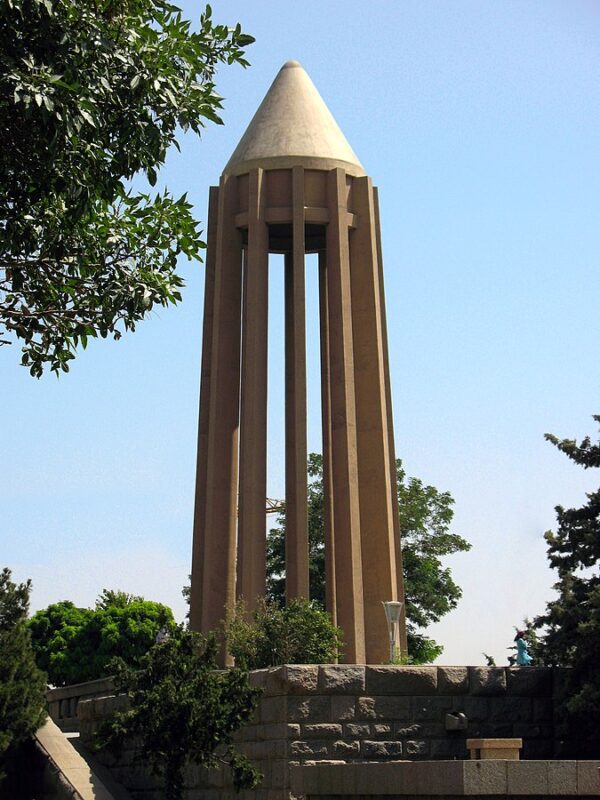Bu Ali Sina Mausoleum is a monument to the grave of the Iranian sage and scientist, Abu Ali Sina, which is located in Bu Ali Sina Square in the center of Hamadan city. This work was registered as one of the national works of Iran on 21 May 1376 with registration number 1869.
Architecture
Bu Ali Sina Mausoleum is a magnificent building that was built during the first Pahlavi period by the order of Reza Shah Pahlavi and with the efforts of the Iranian National Antiquities Association. This building is a combination of traditional Iranian architecture and modern western architecture.
Building specifications
Bu Ali Sina tomb building consists of two main parts:
Tower: The tower of Bo Ali Sina tomb, which is known as the symbol of Hamadan city, is a tall and lofty building made of marble. This tower has a height of 20 meters and a diameter of 10 meters and is placed on a platform with a height of 5 meters.
Museum: The Bo Ali Sina Tomb Museum, which is located on the lower floor of the tower, contains a collection of historical and cultural artifacts related to different periods of Iranian history.
Decorations
The decorations of Bu Ali Sina tomb include sculpture, tiling, plastering and painting.
Sculpture: In the tomb area, statues of Bo Ali Sina, Iranian sages and world famous people have been installed.
Tiling: The exterior and interior of the tomb tower are decorated with exquisite and colorful tiles.
Plastering: The ceiling and interior walls of the tomb museum are decorated with beautiful and delicate plastering.
Painting: Inside the tomb museum, paintings of Bu Ali Sina’s face and scenes from his life are exhibited.
Importance
Bu Ali Sina tomb is of great importance in terms of history, culture and architecture. This building is one of the symbols of Hamedan city and one of the important tourist attractions of Iran.
Bu Ali Sina Mausoleum




Join The Discussion